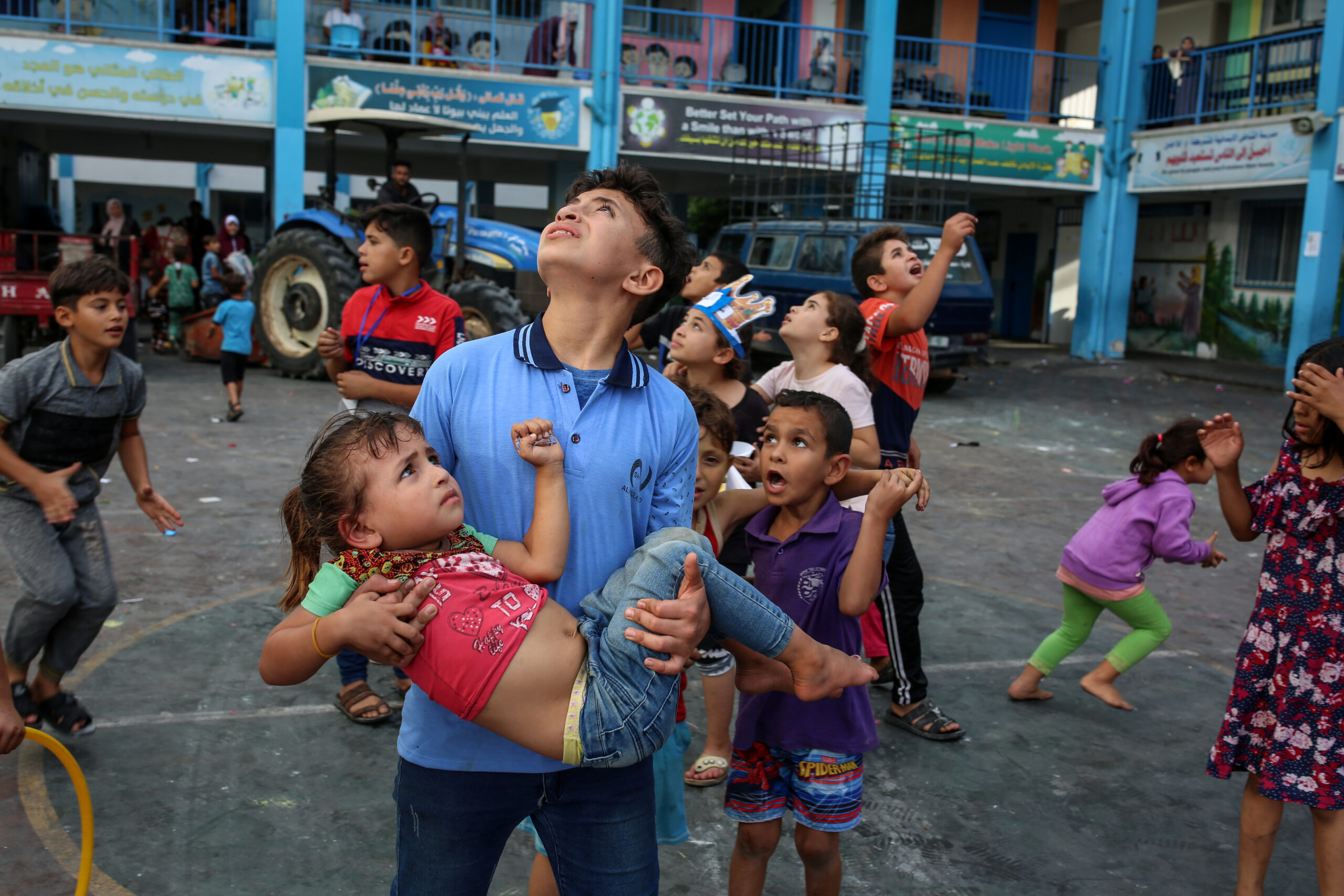Ever since she left Gaza 10 years ago, Abeer Ayyoub never stopped reporting about her hometown. But this time, reporting on the unprecedented devastation in Gaza is proving to be her greatest challenge yet, especially with members of her own family still trapped there. Abeer is a member of the Marie Colvin Journalists’ Network. She currently lives in Istanbul with her husband and daughter, and is reporting for Middle East Eye.
When the war broke out on 7th October, my husband and I discussed whether we should return to Gaza, but we decided it was better for our family to stay in Istanbul. When I had my first child, I resolved never to work in a conflict zone again. I felt it would be selfish if something were to happen to me during the war, and my daughter had to grow up without a mother.
When I call my family in Gaza, they ask me if aid has arrived. If they hear a loud explosion, they ask me if I know the source or the target. They are completely cut off from the world
I decided to cover the war from here. I can call my contacts, sources and families and report from my home. I started pitching story ideas to the outlets that I normally work with. They all wrote back saying they prefer someone on the ground. But a few days later, when Israel cut off the electricity and internet from Gaza, local journalists were unable to send their stories. The editors wrote back asking if I can report for them.
I now write one article a day. Under normal circumstances, I would approach writing like an art. I take my time and I rarely write anything so quickly. But with the ongoing war, I feel like it is my duty to write every day. I also make time to answer international media questions and give interviews and translations. I also post on social media to promote awareness.
I try to alert people to fake news, such as allegations that were reported in most mainstream media, and repeated by world leaders like US President Joe Biden that Hamas beheaded babies and raped women.
I am doing my best, but I am working around the clock. This means that I am not doing a great job as a mother. I spend less quality time with my daughter, and I give her way more screen time than I usually do. But I know it is temporary. My role as a journalist is important. It is also important to tell the story from the Palestinian point of view because it is not fair that the Israeli viewpoint is dominating the Western coverage.
I try to stay neutral in my coverage, but I feel that all the major television channels are taking Israel’s side. How can I be neutral when Israel is occupying my people, isolating them, cutting off water, electricity, and internet, and bombarding around the clock? I may keep my language neutral, but I will not include the Israeli view in my articles. I wouldn't invite a rapist to tell me his side of the story along with rape victim.
I am not shocked that the West has taken Israel’s side. I am not surprised by people’s reaction on social media. But I am shocked that US President Joe Biden is spreading fake news. He blatantly lied in front of the whole world when he said, “I saw photos of beheaded children.”
It is also important to tell the story from the Palestinian point of view because it is not fair that the Israeli viewpoint is dominating the coverage
My family in Gaza actually relies on me for news. When I call them, they ask me if aid has arrived in Gaza. If they hear a loud explosion, they ask me if I know the source or the target. They are completely cut off from the world. They have no idea what is happening.
I feel there is huge pressure on us local journalists. Israel doesn’t want the world to know what is happening in Palestine. They are imposing a siege on Gaza and a media blackout. Production houses and local journalists in Gaza are barely able to report with no electricity or internet.
I am relieved that I can work from here. If I was in Gaza under the bombardment, I wouldn’t have been able to work or write. I would have been trying to comfort and protect my child. I would have been running from one place to another, and there is no safe place in Gaza. This war is not like anything I have ever seen before. This time, the scale of destruction is unprecedented. Here, I am safe and my daughter is safe. It is better for my mental health, and I can work better.
I try not to watch graphic images. I don’t want to see photos of destroyed hospitals or crying children because they will make me unwell and unproductive.
When I interview people in Gaza, I never ask them how they feel. I ask for information only, not feelings. How do you imagine someone who lost her daughter or mother might feel? I ask them about what happened and how it happened, and finally I ask if they have anything else to add. Normally, they open up and describe their feelings.
Main photo: Samar Abu Elouf for the New York Times.
